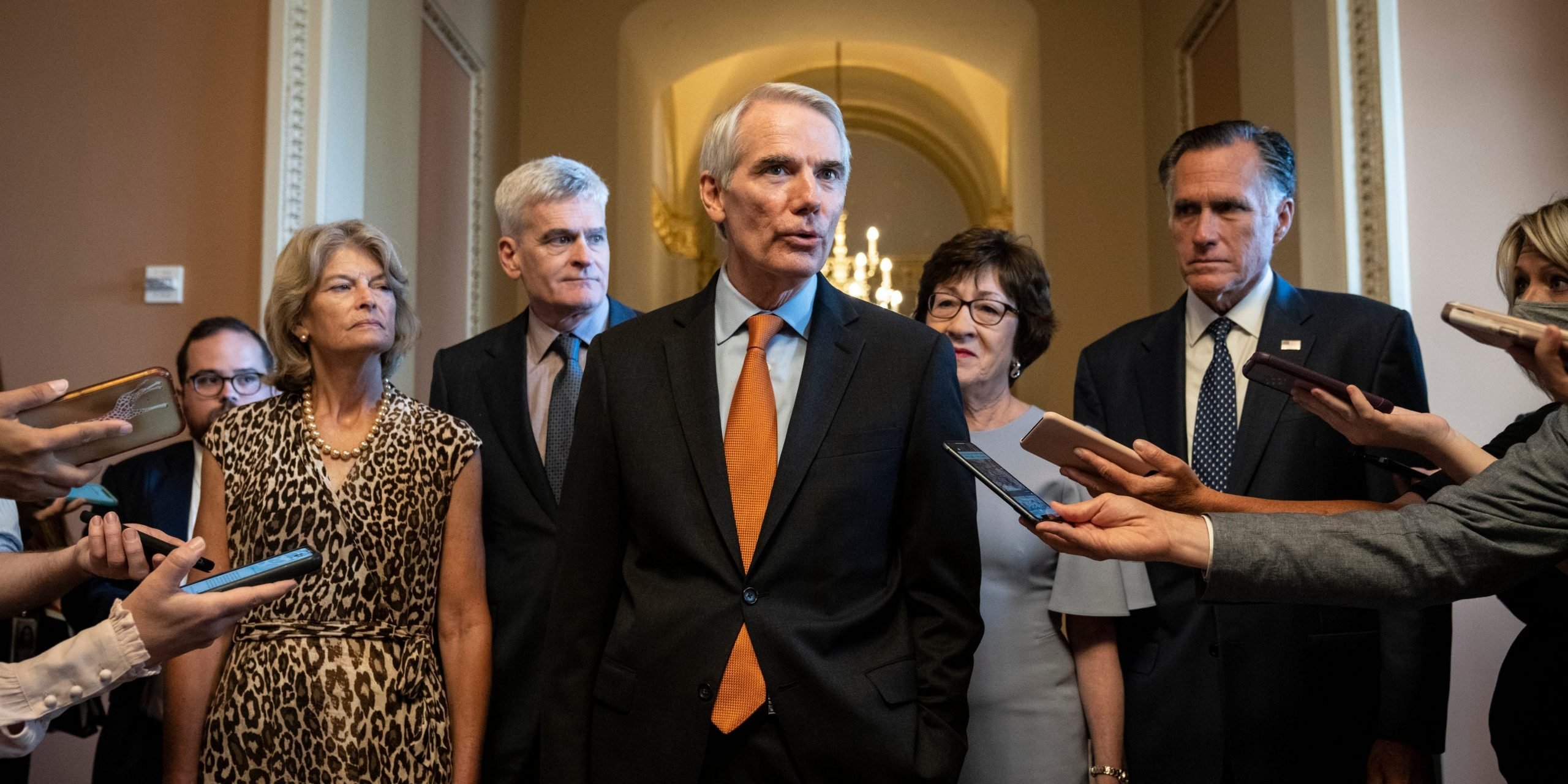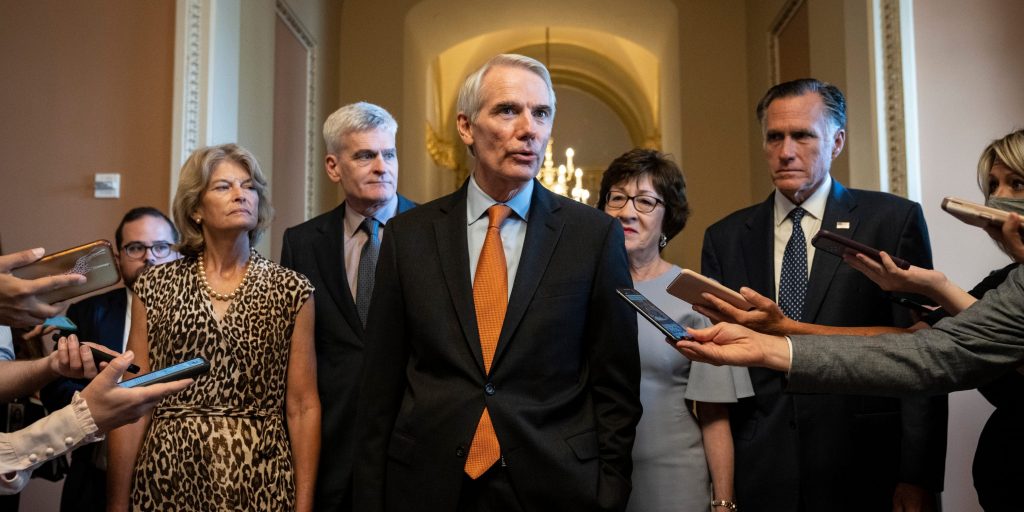
Drew Angerer/Getty Images
- Biden's bipartisan infrastructure deal advanced in a major test vote on Wednesday.
- Seventeen Republicans joined all 50 Senate Democrats in voting for it.
- A final vote for the bipartisan plan will likely happen sometime in the next week or two.
- See more stories on Insider's business page.
President Joe Biden's $1 trillion bipartisan infrastructure agreement advanced in the Senate in a major test vote late on Wednesday afternoon.
The procedural vote was 67-32, allowing it to move ahead in the Senate. Senate Minority Leader Mitch McConnell was among the 17 Republicans that voted to approve the plan, along with all 50 Senate Democrats. One Republican senator, Mike Rounds of South Dakota, was absent.
"My goal remains to pass both the bipartisan infrastructure bill and a budget resolution this work period. Both," Senate Majority Leader Chuck Schumer said immediately after the vote. "It might take some long nights, it might eat into our weekends, but we are going to get the job done. And we are on track."
The procedural vote came hours after a group of 10 GOP and Democratic negotiators announced they struck a deal with the White House on infrastructure. The protracted negotiations produced a new agreement with $550 billion in fresh spending, with $30 billion in cuts coming from transit funds and an infrastructure bank.
The bulk of the spending would go to roads and bridges, along with rail, broadband, and clean water. The plan would be largely paid for with repurposed relief funds from the $1.9 trillion stimulus law passed in March.
The vote sets the stage for a final vote sometime in the next week or two, a top priority for Biden and Senate Minority Leader Chuck Schumer. Democrats are also moving a reconciliation package that would clear the Senate without GOP votes.
The reconciliation bill's $3.5 trillion price tag was thrown into doubt on Wednesday after Sen. Kyrsten Sinema of Arizona came out against it, making cuts to the package likely.
This story will be updated.

